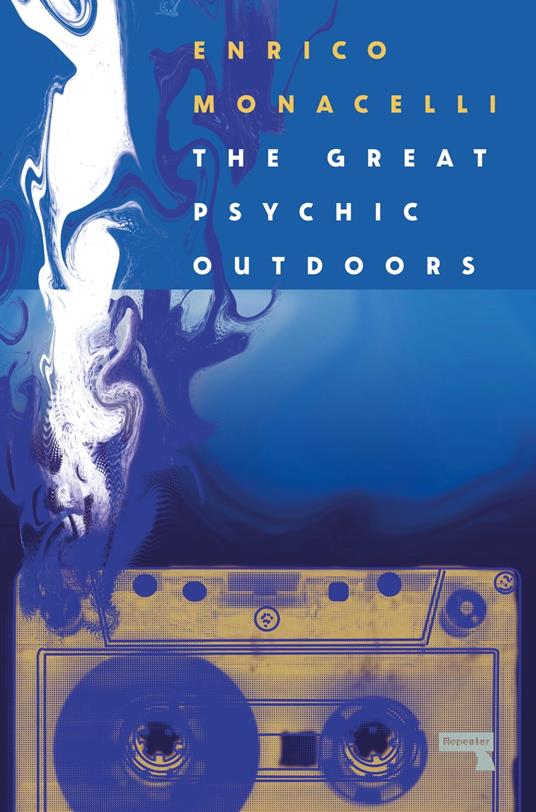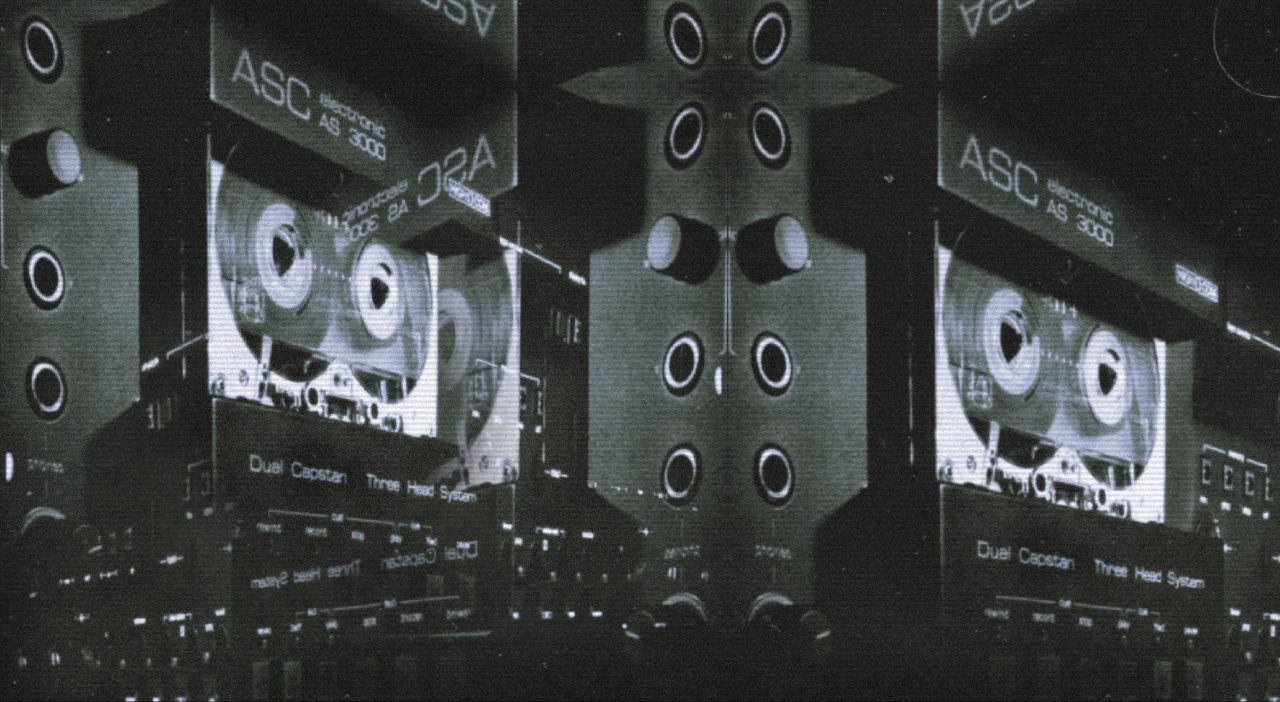Every time I get the inspiration
To go change things around
No one wants to help me look for places
Where new things might be found.
– The Beach Boys
There is a latent struggle that runs through much of Mark Fisher’s writing, and which finds its ultimate formulation in the introduction to the unfinished Acid Communism. Namely, the idea that we must not try to defeat capital, but look beyond it and find what practices its veil seeks to obscure. Fisher identifies the “the collective capacity to produce, care, and enjoy” – thus the communal wealth that capital is incapable of generating – as the object of our necessary and compelling research. Fisher’s considerations stem from a reading of Marcuse’s One-Dimensional Man. As much as the close relationship between art and protest against the status quo proposed by Marcuse has taken considered an irrelevant and antiquated form of romanticism in the public debate, according to Fisher it is important to dwell on the variables that this equation brings into play. The Great Refusal for which the artistic dimension stands as the ultimate protest against that which is: a refusal that channels flows from another space – “an ‘aesthetic dimension’ radically incompatible with everyday life under capitalism” – and that drags forth the materials apt for imagining a world beyond capital with it.
One of Marcuse’s deepest concerns was the possible vulgarisation of the avant-garde, not so much in the name of art’s purity endangered by its democratisation, but because of its possible contamination with the spaces strictly administered by capitalism. The assimilation of art by capital would have concealed the incompatibility between these two spheres, neutralizing the latent potential of the Great Refusal. According to Fisher, for the counterculture of the 1970s “mass culture — and music culture in particular — was a terrain of struggle rather than a dominion of capital. The relationship between aesthetic forms and politics was unstable and inchoate — aesthetic forms did not simply “express” some already-existing capitalist reality, they anticipated and actually produced new possibilities”. How to actualise these reflections? How to bring to light the political core that pulses within the musical discourse? How to step outside capital, how to escape from a dimension that feeds itself through undifferentiated assimilation?
Enrico Monacelli, in The Great Psychic Outdoors, Lo-Fi Music and Escaping Capitalism (Repeater, 2023) shows us one of the ways through and forward: lo-fi music. Monacelli achieves an alchemy of encounters: the artists – each chapter is dedicated to a different artist – are placed at the centre of a polyphonic narrative; artists’ experiences, their music and their words are illuminated from a decentered perspective capable of casting shadows of unexplored meanings. Brian Wilson and Mark Fisher, R. Stevie Moore and Guy Debord, Daniel Johnston and Marcuse, the Marine Girls and Deleuze, Perfume Genius and Andrea Dworking – these are just some of the juxtapositions that give shape to The Great Psychic Outdoors (TGPO, from now on): conceptual instruments of a discourse that oscillates continuously and abruptly between the musical and the political, between theory and praxis, between criticism and listening.
*
At the end of his interview entitled The Adolescent Revolution, Félix Guattari describes his own teenage son’s relationship with politics. He does not dabbles in politics directly: he does not engage with politics through its discourse, but with a soldering iron. It is through the construction of free radio that, in his case, the technical discourse is intimately connected to the political one. It is his way to intervene in the mechanisms, to let his intolerance towards the official media explode, to redefine community life outside the modes of State-sanctioned existence. It is from these words, described by Monacelli as an epiphany, that his own discourse gains momentum. The political tension underpinning lo-fi music lies in the desire to build a new world beyond the logic of capital, to hack into the mechanisms of power underlying musical production; “even the least ideological forms of lo-fi music could be fruitfully analysed […] as forms of tentative escape, sometimes catastrophic and other victorious, and exercises in doing artistic things concretely and differently”. TGPO acts in the exact same way: it is not a theory actualised in practice, but a practice that bleeds in theory. Monacelli talks cables, coils, 8-track tape, improvised recording studios in one’s room, cassette tapes, portable recorders and background noise. Only afterwards, or in the meantime, he makes theory. We are inside the machine, inside the unconscious of contemporary music made invisible by hi-fi music. It is Brian Wilson, leader of the Beach Boys, who becomes the unknowing progenitor of the genealogy traced by the author. TGPO asks us to imagine Wilson in the midst of writing Pet Sounds:
Stuck in the studio, cabin-fevered and surrounded by tapes and odd instruments producing a million sounds, forced to keep the Beach Boys machine rolling to churn out more and more money for his label and the culture industry at large. He feels exhausted and done, he’d just like to go away and be happy. Find a home and be able to properly enjoy himself, the people he loves and his art.
Wilson’s interest in the materiality of sound reflects the radicality of his approach: to sabotage the pop song, to expose the processes of construction of the sound object, to show what lies behind it, to block “the natural recording flux, deconstructs its practices and conventions and uses all of those elements that were previously excluded to create something new and weirdly beautiful”. Subverting what the musical discourse is able to signify implies subverting the way sound is produced in the music industry. In order to reshape the desire that branches out under the hegemony of capital [1] it is necessary to regain control of the instruments that shape it. As the definitive do-it-yourselfer, R. Stevie Moore’s [2] endless and chaotic production was born from these premises: Moore used lo-fi as “a weapon against the inhumanity of capitalist pop music”, or “as a means to transfigure pop into “the environment of an organism which is no longer capable of adapting to the competitive performances required for well- being under domination, no longer capable of tolerating the aggressiveness, brutality, and ugliness of the established way of life” – an aesthetic and political programme.

The theme that runs subterranean throughout TGPO is therefore that of the relationship between lo-fi and escape. Escape from capitalist nonmeaning in search of a supreme good intuitable through the free expression of the immediacy implicit in artistic feeling (Daniel Johnston), escape from patriarchal society through the deflagration of a female oceanic otherness (Marine Girls), escape from sexual disquiet towards a utopia of care (Perfume Genius). Or, fleeing outwards, shaping the limits of existence through the artistic gesture (Phil Elverum), “escape power, go beyond it, obliterate it, transform it, making the radical shift from a controlling, dominating power to an enabling, liberating one”; fleeing ruinously inwards, incorporating the outside in a paranoid and exhausted spiral of endless repetition (Ariel Pink).
In order to articulate itself in its discursive form, TGPO structures itself by filling the gaps traced by its own premises – it seems appropriate to dwell on some of them. Playing a fundamental and conditioning role in Monacelli’s book is the Virnian assumption which describes “social revolution as exodus”. Monacelli writes, through Virno:
the novelty of these forms of struggle was the appearance of “proliferation of the concrete and the different within socialized labor”, an outbreak that “requires a constellation of materialistic concepts which are totally detached from that universality characteristic of the ‘general equivalent’ and which are not used as the bases or synthesizing elements for the actual processes of liberation.
What underpins all of TGPO is thus the pre-eminence of the concrete; doing things concretely, in a different way from the commonly accepted one, is a way that leads to emancipation. Escape is in this way configured as a committed withdrawal; doing things differently equals questioning the structure of commodity and desire production and, thus, making the world a plane of experimentation. This is why DIY and self-production allow us to question how music is produced, “under what conditions and even how that same music is valued and monetized”. The second premise concerns the method: what Monacelli proposes is not a canon, nor a history of lo-fi, but a genealogy. With Foucault, in TGPO the genealogy is constructed by looking for points of rupture [3] capable of allowing the irruption of the new: a “non-linear and disruptive” path that discontinuously allows the exception – what exceeds – and the mutual irreducibility of the artists involved to emerge. As mentioned, in addition to the author’s preferences, the thread that binds them is a sort of widespread fascination with an elsewhere, a poverty of sound that inextricably connects them to that “wild interzone” built in the heart of contemporary music. Lastly, according to Pynchon, “the birthplace of the unspeakable and the miraculous” is crystallised in the act of breaking machines: it is here that “the things that should not be there and that weird us out” come to life – and it is here that Monacelli proposes that we begin our research.
*
After the acknowledgements – after another half-page of white silence – TGPO ends with a fragment from Remarks on Marx, which Mark Fisher already used in his A social and psychic revolution of almost inconceivable magnitude: Popular Culture’s Interrupted Accelerationist Dreams:
The problem is not to recover our ‘lost’ identity, to free our imprisoned nature, our deepest truth; but instead, the problem is to move towards something radically Other. The centre, then, seems still to be found in Marx’s phrase: man produces man. […] For me, what must be produced is not man identical to himself, exactly as nature would have designed him or according to his essence; on the contrary, we must produce something that doesn’t yet exist and about which we cannot know how and what it will be”
In Monacelli’s text, lo-fi is not codified as a genre, but as a medium. It is an instrument of continuous experimentation, capable of making a cut in the chaos of contemporary capitalism and letting in a new light from elsewhere. This light will illuminate the materials suitable for constructing the unthought, for giving space to the unforeseen and the unknown, for igniting the first sparks of that process capable of bringing forth the name of a new desire––and, as Fisher had it, we will recognise it [4].
Break the machine. Make it work otherwise.
___________________________________________________________________________







